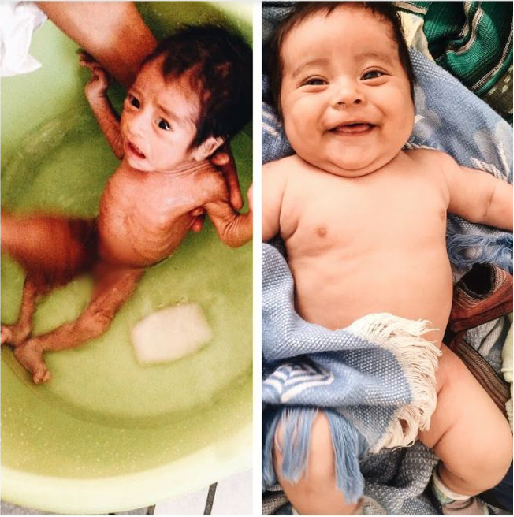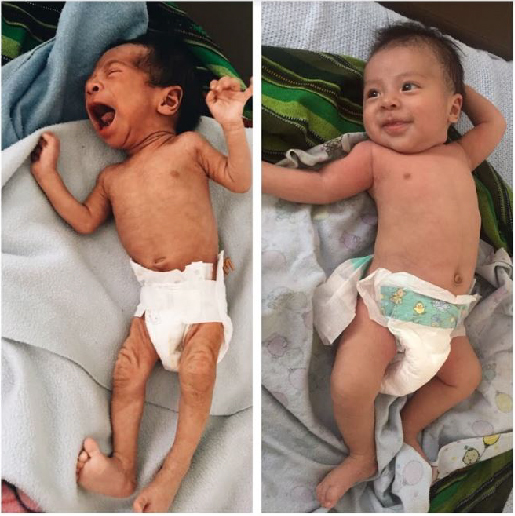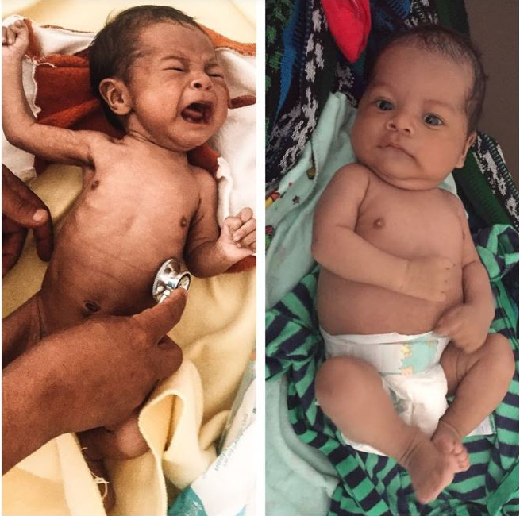
Over 80% of the children in rural Guatemala are malnourished, and infant mortality is high.
We are a nonprofit dedicated to the revival of these children.
Every starving child that comes to our clinic has a story.
This is the story of Genesis.

Casa Tabito aims for the six-village area of Chimaltenango, Guatemala, to be free of all forms of infant malnutrition, seeing all infants achieve a state of health and well-being.
Casa Tabito receives patient referrals from government-run clinics to ensure universal access to nutritional interventions, quality pediatric medical care, sound community health education, and critical home improvements.
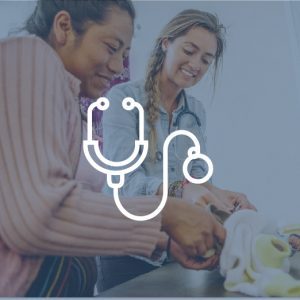
High Quality Medical Care
The Casa Tabito medical team consists of an on-site Pediatrician, two nurses, a physical therapist and a psychologist. This team provides a thorough assessment when a baby arrives at Casa Tabito. Babies whose weight-for-height is less than 70% of the median NCHS/WHO reference values are severely malnourished and enter the 12-month program.
The management of severe malnutrition Casa Tabito provides is divided into 3 phases:
- Initial treatment (month 1 of the program)
- Rehabilitation (months 2-11 of the program)
- Follow-up (months 12-24 of the program)
The first 12 months of the program includes weekly well-checks with our on-site pediatrician. We partner with other organizations to provide surgeries or treat conditions outside of our primary care structure. An infant’s history of malnutrition can often lead to delayed development, so we offer weekly onsite physical therapy and guided playtime.
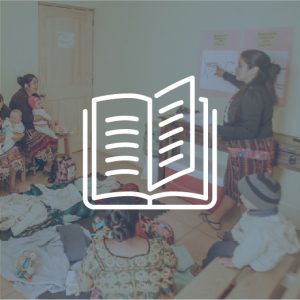
Community Health Education
The mothers in our program commit to a weekly, two-hour class that utilizes an internationally used and recognized curriculum called Community Health Education. We focus on breastfeeding techniques, infant care and health promotion. The course content moves in conjunction will the ages of the infants. We sent a local woman in our village, Lisbeth, to nursing school. She is now the nurse manager of the clinic and teaches the classes independently.
The final segment is a group Bible study. This partnership through the baby’s first year of life allows us to walk alongside these mothers and disciple them. Sharing the gospel and rooting on these mothers in the truth of Jesus Christ is the reason we exist. We will not allow acts of mercy to substitute genuine evangelism and discipleship.
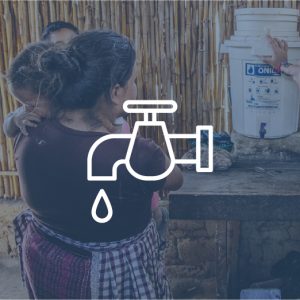
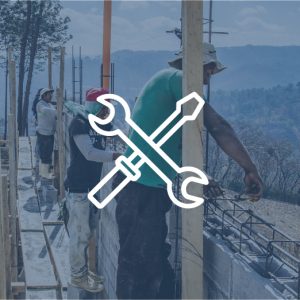
Disease Prevention
- At least 90% of the water in our area is contaminated by fecal matter.
- Waterborne diseases are among the leading killers of children under 5.
- A common cause of death is smoke inhalation, as mothers cook on open fires inside an unventilated kitchen.
The mothers involved in our program receive a water filter and stove as part of their commitment. Our water filters remove bacteria, parasites, and viruses (170 gallons of filtered water a day, lasting a family 10 years). Our hand-built, clean-air stoves have a chimney that directs harmful smoke out of the kitchen and require significantly less wood.
We also build new block homes for community members with roofs that don’t leak, toilets that flush, and kitchens that ventilate. These homes are built with local workers, keeping jobs in the hands of Guatemalan men fighting to provide for their family.
We will continue to facilitate education on sanitation, safe water, and use of our stoves. As community members empower one another with this education, more needs will be identified and addressed. At every touchpoint of our work, we believe that if the community does not identify their own needs, the solution will lack ownership and sustainability.
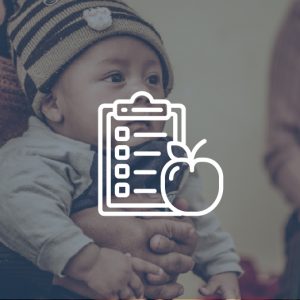
NUTRITIONAL SERVICES
Educational classes, lactation counseling, and care plans created by our pediatrician are all utilized to facilitate healthy weight gain and growth. In severe cases, we supplement breastfeeding with formula and commit to providing this formula until the baby is 1 year old.
We offer community-wide infant screenings. This combination of mid-upper-arm circumference, height and weight z-scores and family interviews allow the most vulnerable babies to be identified. Also, several government-run clinics conduct nutritional screenings and refer the most severe babies to our clinic. Those malnourished babies identified join our program where we nourish these babies through their first year of life.
